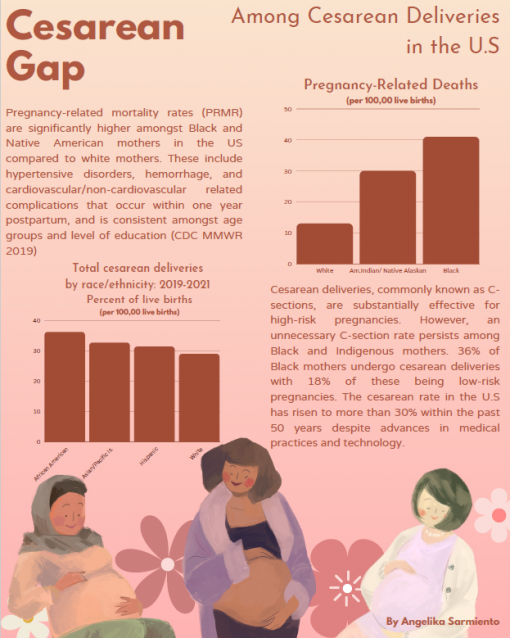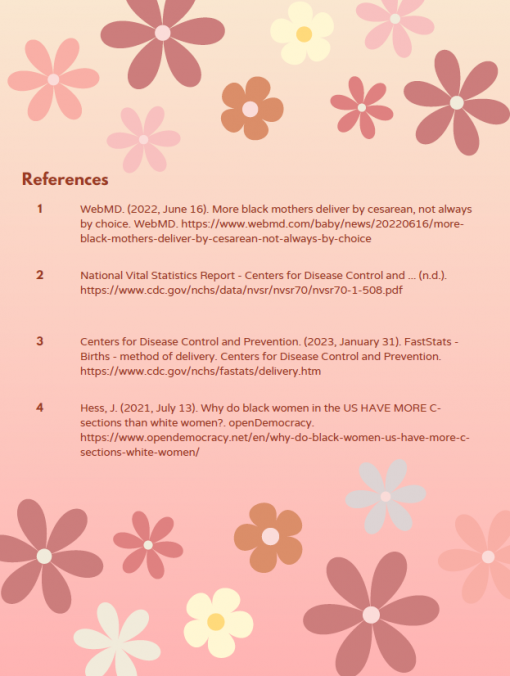The Cesarean Gap: Addressing the Racial Disparity Among Cesarean Deliveries in the U.S.
By Angelika Sarmiento, UC Berkeley
2022-2023 Student Ambassador Cohort - Center for Gender and Health Justice
June 2, 2023
There is a significant disparity within the healthcare system that places mothers of color at higher risk for post-partum medical complications through the push for cesarean deliveries (C-sections).
C-sections are commonly viable for high-risk pregnancies including transverse, breached, and slow and/or prolonged deliveries. However, an increase in cesarean deliveries for low-risk pregnancies among mothers of color suggests a racial disparity that highlights a concerning issue within the healthcare system. Research has revealed that Black mothers are more likely to experience medical interventions during childbirth, including cesarean sections, despite accounting for various non-medical related factors such as age, education, and socioeconomics tatus. Black mothers, for example, are three times more likely to experience post-partum complications than their white counterparts. A study published in the Journal of the American Medical Association(JAMA) in 2017 analyzed data from 11 states and found that Black women had a postpartum mortality rate of 42.8 deaths per 100,000 live births, while white women had a rate of 13 deaths per 100,000 livebirths.
Implicit biases in healthcare, systemic racism, and inequitable access to quality prenatal care in the U.S. have been identified as contributing factors to this disparity. It is crucial to address these underlying issues and work towards equitable and patient-centered care to ensure that all mothers, regardless of their race or ethnicity, have equal opportunities for safe and healthy childbirth experiences.


